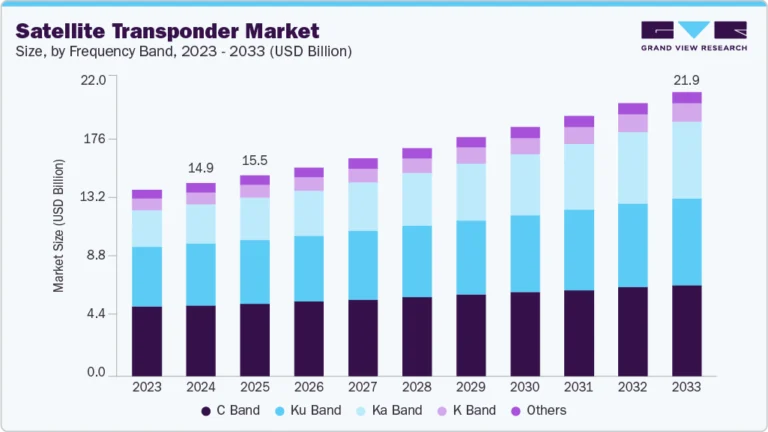Self-sovereign Identity Market Size, Share & Trends Analysis growing at a CAGR of 66.8% from 2025 to 2030

The global self-sovereign identity market size was estimated at USD 1.9 billion in 2024 and is projected to reach USD 38,085.4 million by 2030, growing at a CAGR of 66.8% from 2025 to 2030. The self-sovereign identity (SSI) market is gaining momentum as organizations seek secure, decentralized ways to manage digital identities.
Key Market Trends & Insights
- North America leads the global self-sovereign identity (SSI) market accounting for leading share of 38.7% in 2024.
- In terms of offering, the solution segment dominates the Self-Sovereign Identity (SSI) market is anticipated to hold 63.9% in 2024.
- In terms of network, the Permissioned segment is expected to account for the largest market revenue share in 2024.
- In terms of vertical, the BFSI segment held the largest market revenue share in 2024.
Market Size & Forecast
- 2024 Market Size: USD 1.9 Billion
- 2030 Projected Market Size: USD 38,085.4 Million
- CAGR (2025-2030): 66.8%
- North America: Largest market in 2024
Request a free sample copy or view report summary: https://www.grandviewresearch.com/industry-analysis/self-sovereign-identity-ssi-market-report/request/rs1
Adoption is being fueled by mobile-first solutions that give users control over their identity data through digital wallets. Integration of biometrics with verifiable credentials is enhancing both security and user convenience, especially in high-trust environments.
Standardization efforts, such as W3C Verifiable Credentials, are enabling interoperability and expanding SSI use cases across industries and borders. For instance, in August 2024, NEC Corporation, an information technology and electronics corporation in Japan, introduced a cardless digital employee ID system for 20,000 employees in Japan, combining facial recognition with Microsoft Entra Verified ID to enable secure, self-sovereign identity management via smartphone. This system empowers employees to control their identity data while enhancing workplace security and efficiency under NEC’s Client Zero innovation approach.
On-device identity proofing is becoming a pivotal trend in digital identity management, allowing users to authenticate directly on their devices without relying on centralized databases. This approach significantly enhances data security by reducing the exposure of personal information. It also aligns with global privacy regulations, such as GDPR and CCPA, which emphasize user control and data minimization. This decentralized model supports Self-Sovereign Identity (SSI), giving users full control over their credentials and the ability to disclose only necessary information.
As industries such as finance and healthcare continue to adopt digital identity solutions, on-device proofing provides a secure and compliant method of verification. For instance, in November 2024, Privately SA and Privado ID, a U.S.-based privacy-first identity infrastructure company, partnered to develop a privacy-first, on-device age verification solution that utilizes AI-driven age estimation and Self-Sovereign Identity to ensure compliance without compromising user privacy. This solution allows users to verify their age once and reuse that verification across multiple platforms, supporting sectors such as adult content, gaming, and streaming.
The ongoing digital transformation across sectors such as finance, healthcare, and government is creating a growing demand for efficient and secure digital identity solutions. As businesses and public services increasingly move online, the need for robust identity management systems that ensure both security and user privacy has become critical. Self-Sovereign Identity (SSI) is perfectly positioned to address these challenges, offering a decentralized approach that gives users full control over their personal data. With SSI, individuals can securely manage and share their identities without relying on centralized databases, which reduces the risks of data breaches. As more sectors undergo digitalization, SSI is emerging as a key solution to streamline identity management, enhance security, and promote user autonomy in the digital world.
Growing concerns about data breaches and identity theft are fueling the demand for Self-Sovereign Identity (SSI) solutions that empower individuals to have greater control over their personal information. As cyber threats continue to rise, people are increasingly seeking ways to safeguard their data from unauthorized access. At the same time, regulations such as GDPR and similar laws worldwide are pushing organizations to adopt privacy-preserving identity management systems. These regulations emphasize the need for secure data handling practices, encouraging the use of decentralized systems such as SSI that put individuals in charge of their identity data. This trend is driving the widespread adoption of SSI as businesses and governments work to meet privacy standards while enhancing user trust and security.
Offerings Insights
In terms of offering, the solution segment dominates the Self-Sovereign Identity (SSI) market is anticipated to hold 63.9% in 2024. This growth is driven by the increasing demand for secure and privacy-preserving identity management solutions across various industries. Organizations are adopting SSI solutions to enhance user control over personal data while ensuring compliance with privacy regulations. Moreover, the rise of digital transformation and the need for secure, decentralized identity systems further support the dominance of this segment. As more businesses integrate SSI solutions into their infrastructure, the segment’s market share is expected to continue growing.
The services segment is projected to grow significantly over the forecast period due to the increasing demand for support and consultation in implementing self-sovereign identity solutions. As organizations adopt SSI technologies, they require expert guidance in integrating and managing these systems within their existing infrastructure. The need for ongoing maintenance, updates, and security services is also driving this growth. Moreover, as the adoption of SSI expands across industries, demand for services such as training, compliance assistance, and identity verification will increase. This trend is expected to contribute to the overall expansion of the SSI market.





